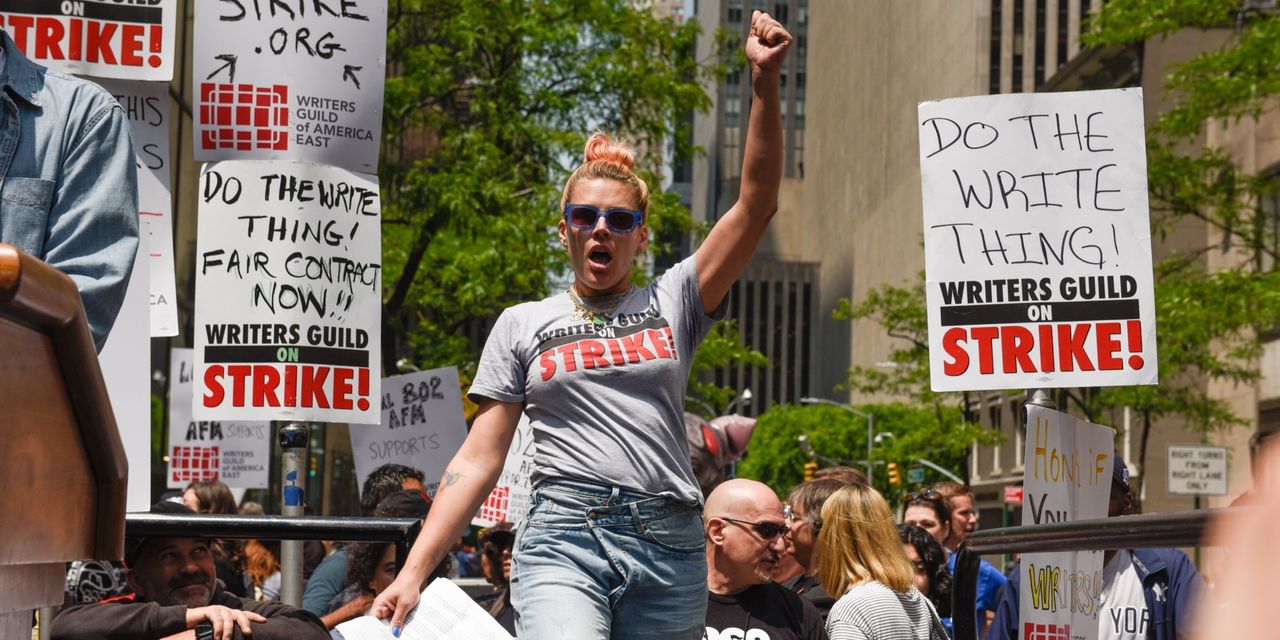The Screen Actors Guild’s National Board voted unanimously to go on strike at 12:01 a.m. Pacific Time on Friday, saying the Alliance of Motion Picture and Television Producers had failed to offer a fair deal on longstanding issues.
The decision could lead to a complete shutdown of Hollywood.
“I cannot believe it, quite frankly, how far apart we are on so many things,” SAG-AFTRA national president and negotiator Fran Drescher said. “How they plead poverty, that they’re losing money left and right, when giving hundreds of millions of dollars to their CEOs. It is disgusting. Shame on them. They stand on the wrong side of history.”
SAG-AFTRA said members wouldn’t be performing on-camera or off-camera work under the TV/theatrical contracts, or promoting the studios’ work at film festivals, public appearances, interviews or on social media, as often happens after Emmy nomination announcements, for example.
SAG-AFTRA is the world’s largest labor union representing performers and broadcasters, with 160,000 members.
The union said Thursday that despite more than four weeks of negotiations with the AMPTP, which represents large studios and streamers like Walt Disney (ticker: DIS), NBCUniversal, Netflix (NFLX), and Warner Bros. Discovery (WBD), it had not been able to reach agreement on key issues, including how much performers should receive in residuals from the streaming platforms, and the use of their likenesses via artificial intelligence.
AMPTP said in a statement sent to Barron’s that it offered “historic pay and residual increases, substantially higher caps on pension and health contributions, audition protections, shortened series option periods, and a groundbreaking AI proposal that protects actors’ digital likenesses for SAG-AFTRA members.”
SAG-AFTRA’s negotiators disputed those assertions on Thursday afternoon, saying the studios had not bargained in good faith and could well afford the pay increases and other protections they had sought.
Drescher said she and others entered contract talks optimistic about a positive outcome, but that “at some point, we have to say, ‘We’re not going to take it any more.’”
Disney Chief Executive Bob Iger called the strike “disturbing” in an interview with CNBC.
“There’s a level of expectation that they have that is just not realistic, and they are adding to a set of challenges that this business is already facing, that is, quite frankly, very disruptive,” Iger said.
Hollywood writers went on strike in May, which has disrupted the creation of many late-night and live-action television programs. An actors strike raises the pressure on studios to try to come to a deal with the unions. The strikes are certain to cause even more shutdowns to productions of shows and award ceremonies. This could weigh on stocks of streaming and television companies that will have their shows put on hold.
Warner Bros. Discovery stock fell 0.5% on Thursday, while
Paramount Global
(PARA) shares rose 1.7%.
However, Benchmark analyst Matthew Harrigan says that
Comcast
(CMCSA), the parent of NBCUniversal and Peacock, is better positioned to weather this storm.
“The movie business in particular has a significant queue of releases already in the pipeline, and NBCUniversal overall has a high reality show programming component that is unaffected by the strike,” Harrigan said. He rates Comcast stock, which was little changed Wednesday, a Buy with a $49 price target.
Write to Angela Palumbo at [email protected]
Read the full article here



